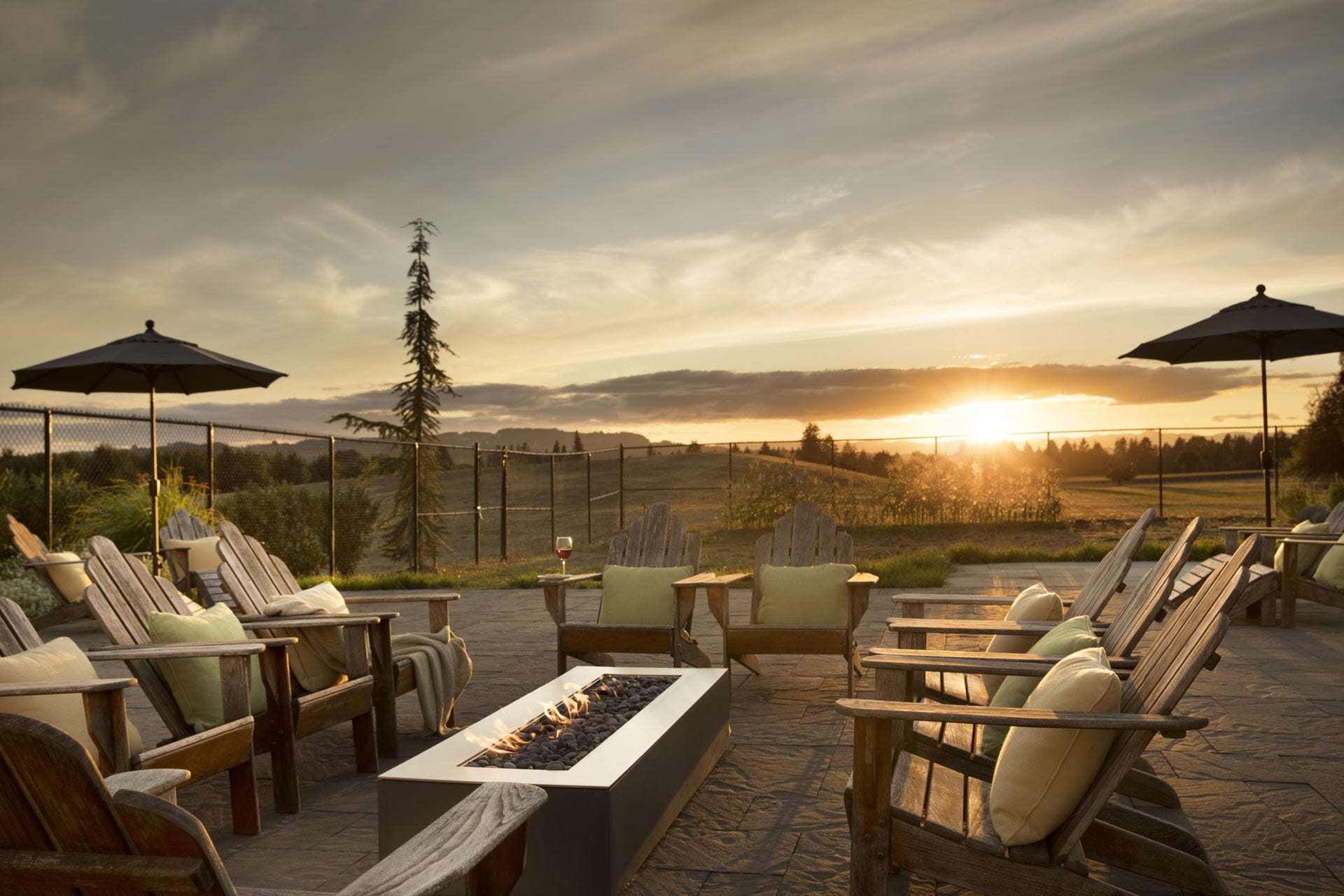Wine Enthusiast |
| Delaware’s Burgeoning Wine Industry is at a Precipice Posted: 12 Aug 2021 04:30 AM PDT  Peggy Raley-Ward was 21 years old when she decided to open a winery on her father's farm in Sussex County, Delaware. The only problem? At that time, in 1988, it was prohibited to produce and sell alcohol manufactured within state lines. So, for three years, Raley-Ward worked to change the law. Last month marked 30 years since Raley-Ward successfully lobbied the General Assembly to pass its Farm Winery legislation, which ushered in Delaware's wine, cider and craft brew industry. Her winery, Nassau Valley Vineyards, officially debuted in 1993, and it was the state's sole commercial vineyard until brothers Pete and Tony Pizzadili founded Pizzadili Winery in 2007. Delaware's craft wine and beer scene continues to grow. There are four wineries, two meaderies, and more than 20 breweries, some of which also distill spirits, in the state's 1,982 square miles.  Long overlooked as a winegrowing region, local winemaker Chuck Nunan of Harvest Ridge Winery says he's considering labeling a future bottling Dela-WHERE? However, in certain ways, Delaware is ideal for winemaking. Its location between the Atlantic Ocean and Delaware Bay ensures a relatively mild climate, and the sandy soil provides good drainage. Its topography allows winegrowers to cultivate Vitis vinifera like Merlot, Cabernet and Chardonnay. As legend has it, French wine magazine Gilbert & Gaillard later superimposed a map of Bordeaux over the Delaware Valley region and noted the similarities between the Delaware Bay and the Gironde estuary. The magazine compared Delaware's growing climate to Bordeaux's Right Bank, with similarities in season, climates tempered by large bodies of water and soil composition. The state's size is also an advantage. Most U.S. winemakers don't have photos of their governor stomping grapes or know their local representative's favorite red wine, unlike those in Delaware. Raley-Ward and Nunan have personal relationships with the farmers who supply them fruit grown in places other than their estates, and Nunan mentors a grape farmer who recently went into business up the road. When these growers run into a problem, they say, they can call their state senators or the state's liquor commissioner and know they'll be heard.  However, the novel coronavirus pandemic uprooted Delaware's burgeoning wine business. Raley-Ward cites shipping delays and equipment shortages as ongoing sources of frustration. "Dealing with Covid has been harder than starting the industry," she says. When bars and restaurants lost revenue in 2020, Raley-Ward says, legislation was passed to allow the sale of takeout drinks. But comparable alterations were not made to the wine industry. Delaware is one of just five states where laws favor a distributor-based model, rather than direct-to-consumer shipments, which means even licensed small wineries in the state are unable to ship directly to consumers. In May, House Bill 210, which would allow wineries to ship directly to consumers within state lines, was introduced to the state's General Assembly. There's been no movement on the bill as of yet. The legislation and pro-business mentality that helped Delaware's wine industry grow also permits commercial and residential development. Some winemakers feel their burgeoning businesses are threatened by new housing for retirees, former city dwellers and remote workers moving to the beachfront area.  Adrian Mobila, a fourth-generation winemaker and founder of Salted Vines Vineyard & Winery, appreciates how the influx of arrivals from New York and the greater Washington D.C. area drives the push for quality Delaware wines. However, he says, these new residents have different needs and priorities than winemakers like himself, Raley-Ward and Nunan. As once-permeable land is converted for commercial and residential use, estuaries and natural water runoff areas are sacrificed, which adds to flood risk. Faced with a labor shortage, corn and soybean farmers are eager to sell to developers. The landscape of Sussex County, once synonymous with agriculture, is changing rapidly. This shift does not bode well for wine, says Mobila. Despite these challenges, there's a sense of optimism at Harvest Ridge and Salted Vines. Mobila and Nunan say that, while significant capital is needed to launch a vineyard, the reward is substantial. In Delaware, a vineyard can gross up to six times more per acre than through row crops like corn and soybean. Wine grapes require considerably smaller farms, too. Nunan's oldest grandson is spending this summer on the farm. He believes that future generations will have the foresight to convert corn and soy plots to small acreages of grapes before those farms succumb to the tide of housing developments that stretch west from the beaches. Such a decision could be crucial to the survival of Delaware's wine industry. |
| As Travel Surges, Wine Country Resorts Grapple with Labor Shortages and Limited Capacity Posted: 12 Aug 2021 04:00 AM PDT  Thanks to the vaccines and relaxed state and federal regulations regarding the novel coronavirus pandemic, America's wine regions have been experiencing a tourism surge this summer. And many resorts and hotels are welcoming guests back at full or partial capacity. "Walla Walla is booming," says Mary Besbris, general manager of the Eritage Resort in Walla Walla, Washington. "People are here and ready to spend." But it's not yet blue skies and full sail ahead. Ongoing Covid-19 concerns and other issues stand in the way. One of the biggest challenges facing hoteliers in wine country is the massive worker shortage in the restaurant and hospitality industries. Millions of service professionals have left the field, citing reasons like low pay and poor work-life balance. Lack of staffing means reopening at full capacity isn't possible at some resorts. The high-end The Allison Inn & Spa in Oregon's Willamette Valley has nearly 100 unfilled positions and, as a result, the hotel's peak occupancy is capped at 70%. The restaurant, Jory Restaurant and Bar, is limited to 50% occupancy. For Managing Director Pierre Zreik, it's better to operate at reduced capacity but still meet expectations.  "Our reputation is at stake," Zreik says. "Customer service is very, very crucial [to us]…and we'd rather have less guests and still be able to provide the best service." At resorts nationwide, managers like Zreik take on additional duties, serving as valets or helping clean rooms. "It's all-hands-on-deck here," says Besbris. "We have to support the staff while also giving the best experience to the guest." To try to entice staff to return, many resorts have introduced hiring bonuses and higher wages. Some go even further, taking this shift in the hospitality industry as an opportunity to create more mutually beneficial working relationships with their staff. The Eritage implemented shorter workweeks from 40 to 32 hours along with a wage increase in housekeeping from $14 to $16 an hour. The goal is to give its team better work-life balance for the long haul, even if it is currently short-staffed. "It's really important to me to have the right people stay in," says Besbris. "If we're challenged in the short term, it's worth it." Then, there's the delicate balancing act of protecting staff from Covid-19 while managing guests. "Staff can keep masks on if they want and we will back them up," says Max Compagnon, managing director of Yountville's Napa Valley Lodge and its parent company, Woodside Hotel Group. Most managers report that, overall, guests have been patient, understanding and supportive, although there has occasionally been friction and "mixed feedback," according to Besbris. "There are people who understand that things are different now and there are challenges," she says. "It's the reality of traveling right now." The size of an establishment plays a large role in how it navigates this uncertain travel era. At the four-bedroom, nine-key Inn at Stinson Vineyards in Crozet, Virginia, there is only a handful of staff. With housekeeping being done between guest stays, the chef is generally the only staff member located on-site with the guests in order to prepare meals. The rhythms of many bed and breakfasts—entry granted through keypads instead of in-person check-in, extreme attention to detail and cleanliness and guests largely left to their own devices about their choice of activities—dovetails with current safety precautions. "2020 was our busiest year ever," says General Manager Stephanie Campbell. "We're in this little bubble that's been insulated from some of the issues that may be impacting larger properties." All hospitality professionals are now readjusting their practices for the more transmissible Delta variant. This is a top concern heading into fall and winter. With case numbers rising in many areas, the specter of 2020's shutdowns and business closures haunts hoteliers, with many checking daily for local updates and continuing to keep their businesses as sanitized and safe as possible. "I'm very nervous, so we'll see what happens," Zreik says. "We cannot let our guard down." |
| You are subscribed to email updates from Wine Enthusiast. To stop receiving these emails, you may unsubscribe now. | Email delivery powered by Google |
| Google, 1600 Amphitheatre Parkway, Mountain View, CA 94043, United States | |

















0 comments:
Post a Comment